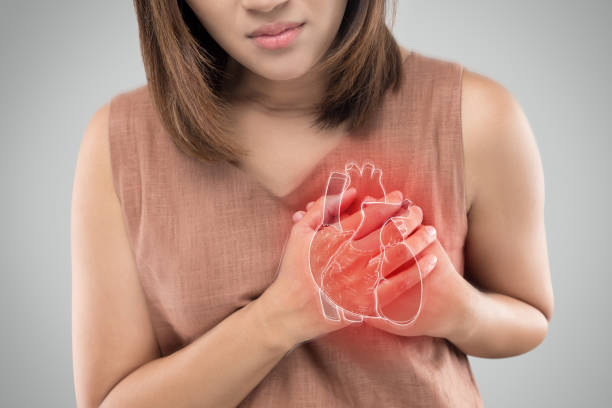Heart inflammation, also known as myocarditis, is a condition where the heart muscle becomes inflamed. This can be due to a viral infection, autoimmune disease, or other underlying causes. In some cases, myocarditis can lead to serious complications, including heart failure, arrhythmias, and even death.
Symptoms of heart inflammation vary depending on the severity of the condition, but they may include:
Chest pain or pressure
Fatigue or weakness
Shortness of breath or difficulty breathing
Rapid or irregular heartbeat
Lightheadedness or fainting
Swelling in the legs, ankles, or feet
Flu-like symptoms, such as fever, muscle aches, and headache
It’s important to note that some people with heart inflammation may not experience any symptoms at all. If you are experiencing any symptoms or have a family history of heart problems, it’s important to see a doctor for a proper evaluation.
Diagnosis of myocarditis typically begins with a physical exam and medical history. Your doctor may also order a variety of tests, including:
Electrocardiogram (ECG) to check for abnormal heart rhythms
Echocardiogram to check the heart’s function and structure
Blood tests to check for markers of inflammation or infection
Biopsy of heart tissue to confirm the diagnosis
Treatment for heart inflammation depends on the underlying cause of the condition and the severity of symptoms. Some common treatments include:
Medications: Anti-inflammatory drugs, such as corticosteroids, may be used to reduce inflammation. Antiviral medications may also be prescribed if a viral infection is causing the inflammation.
Bed rest: In severe cases, bed rest may be recommended to allow the heart to rest and recover.
Lifestyle changes: Making changes to your diet, exercise routine, and stress levels can help manage symptoms and reduce the risk of complications.
Surgery: In some cases, surgery may be necessary to treat underlying causes of heart inflammation, such as a congenital heart defect.
Heart transplant: In severe cases of heart failure, a heart transplant may be necessary.
It’s important to take heart inflammation seriously, as it can lead to serious complications and even death if left untreated. If you are experiencing symptoms, it’s important to see a doctor for a proper evaluation and treatment.
In conclusion, heart inflammation is a condition that occurs when the heart muscle becomes inflamed. Symptoms may include chest pain, fatigue, shortness of breath, and more. Treatment for heart inflammation depends on the underlying cause and severity of symptoms and may include medications, bed rest, lifestyle changes, surgery, and in severe cases, a heart transplant. If you are experiencing symptoms, it’s important to see a doctor for a proper evaluation and treatment.

 Home
Home Health
Health Diet & Nutrition
Diet & Nutrition Living Well
Living Well More
More












